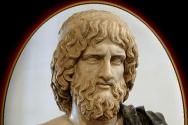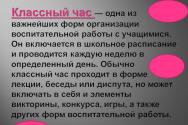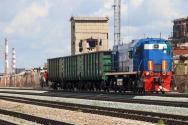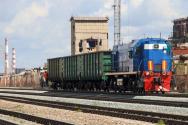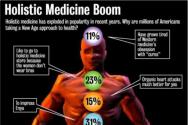Nicholas the saint, Prince of Chernigov, Pechersk miracle worker, resting in nearby caves, venerable. St. Nicholas the Saint of Pechersk Documentary film “Prince-Monk”
The image of this world passes by. Dominion passes from people to people. The Lord overthrows the thrones of rulers and places the meek in their place (1 Cor. 7:31; Sir. 10:8 and 17). The blessed and faithful Prince Nikola Svyatosha, son of David Svyatoslavich, Prince of Chernigov, grandson of Svyatoslav Yaroslavich, Prince of Kyiv and Chernigov, who founded the holy Pechersk Church, created by God, thought about this fragility of earthly and transitory greatness. And he realized that only in heaven does the image of the Hypostasis of God, His ever-present Word, do not pass away, and there is only the Kingdom of all ages and greatness in every generation and generation, prepared by the King of kings and Lord of lords for those who love Him. And therefore, leaving the glory and wealth, honor and power of his earthly transient reign for the sake of the heavenly eternal Kingdom (like that ancient Indian prince Joasaph) and coming to the Pechersk monastery, he clothed himself in a holy monastic image, opposite to every image of this world, which is transitory, like a shadow and non-existence, and, as far as possible, corresponding to the unchanging image of the Hypostasis of God.
And he shone so brightly with the brilliance of his life that everyone saw his good deeds and glorified God for him. He excelled most in obedience. At first he worked for the brethren in the kitchen, chopped wood with his own hands and often carried it from the shore on his shoulders, diligently did everything else needed for the kitchen. After many of his labors, his brothers, Izyaslav and Vladimir, found out about this, and almost forced him to give up this business. But this true novice begged with tears to work for another year in the cookhouse for the brethren. And in total he worked there for three years with all possible diligence and reverence. Then, as skillful and perfect in everything, he was assigned as a watchman to the monastery gates and stayed there for three years, without leaving anywhere except the church. From there they took him to serve at the meal, and he did it as he should, with readiness.
When he went through the order of the degrees of obedience, the abbot and all the brethren decided that he needed to remain silent in his cell and work in silence for his salvation. He, obeying in this too, planted an orchard with his hands next to his cell. And in all the years of monasticism they never saw him idle, but he always had handicrafts in his hands; in your mouth is the constant prayer of Jesus: “Lord Jesus Christ, Son of God, have mercy on me”.
He did not eat anything other than a small amount of common monastic food at the meal.
If, against his will, he happened to have something, like a prince, from his former people, then he distributed everything to strangers, beggars and the building of churches and donated many books to the church.
This blessed prince, when he still owned his principality, had a very skillful doctor named Peter, originally from Syria. He came with the prince to the monastery. Seeing the free poverty of his master, the doctor left him, lived in Kyiv and treated many. But he often came to the blessed one and, seeing him in many hardships, in immeasurable fasting, serving in the kitchen and sitting at the gate, admonished him, saying: “Prince, you need to think about your health, so as not to exhaust yourself with much labor and abstinence: when you are exhausted from this, it will be inconvenient for you to bear the yoke that you took upon yourself for the sake of Christ. God does not want labor or fasting beyond strength, but only a pure and humble heart. You work for the monks like a bought slave, you are not used to such work, and you should not do this like a prince. Your noble brothers, Izyaslav and Vladimir, reproach themselves and are in great sorrow over your poverty, that from such glory and honor you have reached the last squalor, you starve your body and get sick because of food that is unsuitable for you. I am surprised how your stomach has changed, which used to hurt from delicate dishes, and now tolerates coarse greens and dry bread. But be careful that disease does not suddenly appear in all parts of the body, and you, lacking the strength within yourself, lose your life. Then I will be unable to help you, and you will leave inconsolable crying among your brothers. The boyars who served you, who were proud of you, now, having lost their hope in you, regret you and are cast into despondency, but still they live in rich houses that they built for themselves, but you have nowhere to bow your head and nowhere to sit, only on rubbish heaps sometimes near the cookhouse, sometimes at the gate. Which of the Russian princes did this - your blessed father David or your ever-memorable grandfather Svyatoslav? Not even one of the boyars wished for the inglorious path of such a life, only Varlaam, who was the abbot here. Therefore, if you do not listen to my advice, you will die before your destiny.” The doctor spoke to the blessed one about many other things, on behalf of his brothers, sometimes sitting with him in the kitchen, sometimes at the gate.
The blessed one answered him: “Brother Peter, I thought a lot about the salvation of my soul and decided that it is not necessary to spare the flesh, so that it does not burden the spirit with lusts and does not rebel against me in struggle. Tormented by abstinence and labor, she will humble herself and not become exhausted; and even if she were weak, then as the Lord said to the Apostle: My power is made perfect in weakness (2 Cor. 12:9). The Apostle said: The sufferings of this present time are not worth anything in comparison with the glory that will be revealed in us (Rom. 8:18). God wants a pure and humble heart, but without fasting and work it cannot be like that. Because fasting is the mother of chastity and purity. It is also said: he humbled their hearts with their works (Ps. 106:12). I thank God that He freed me from slavery to the world and made me a slave of His servants, these blessed monks, for I, being a prince, work for the King of kings in their person. Let my brothers think about themselves, each one will bear his own burden (Gal. 6:5). For them, it is enough to worry about the power that I left in my earthly reign in order to inherit in the Kingdom of Heaven, for I became poor for the sake of Christ in order to gain Christ (Phil. 3:8). Why, in my poverty, do you reproach me for abstinence and rough food, threatening me with death? And when you heal a physical illness, don’t you order the patient to abstain and avoid certain foods? And I need this method to treat spiritual illnesses. But even if I die bodily, dying for Christ’s sake is gain for me (Phil. 1:21). And why am I sitting by the weed heaps - why do you consider me worse than my boyars: after all, I will reign with Job, who in life was called a king. If none of the Russian princes did this before me, then let me, imitating the King of Heaven, be an example to them, so that from now on someone will be jealous and follow me. And there - think about yourself and about those who taught you.
It often happened that when this blessed prince fell ill, working in obedience, then the doctor Peter, having learned about it, prepared medicine for him to cure some of his ailments - fever or water damage to the blood, but always before he came with the medicine, With God's help, the prince recovered and never allowed himself to be treated. One day it happened that the doctor himself fell ill, and the blessed one sent him to him, saying: “If you don’t take medicine, you will soon recover, but if you don’t listen to me, you will suffer a lot. The same, considering himself an experienced doctor, did not listen, but drank the prepared medicine and, wanting to get rid of the disease, almost lost his life. Then he recovered through the prayer of the saint. The next time this doctor fell ill again, the blessed one sent him to him with the following promise: “On the third day you will recover if you do not treat yourself.” The doctor, punished for his first disobedience, listened to the blessed one and, according to his word, recovered on the third day.
The blessed one called the healed man (who was then finishing his obedience at the gate) and said to him: “Peter, you should take monastic vows and work for the Lord and His Most Pure Mother in this monastery instead of me, because in three months I will depart from this world.”
Hearing this, the doctor Peter fell at his feet and exclaimed with tears: “Woe is me, my lord, my benefactor, my precious life! Who will take care of my earthly journey, who will feed the orphaned and wretched, who will stand up for the offended, who will have mercy on the many people asking for help? Didn’t I tell you: Prince, spare your life, because you can be useful to many, and in your life there is the life of many. Didn’t you heal me with the power of God and your prayer - and now where are you going, good shepherd, what are you sick with, my healer? Tell me, your servant, about your mortal wound, and if I do not cure you, let my head be for your head, and my soul for your soul. Do not leave me in silence, but tell me, my lord, where did you get this news from? If from people, I will give my life for you, but if the Lord Himself informed you about this, pray to Him that I die for you. If you leave me, then where will I sit and mourn my orphanhood? Isn't it on this trash heap at the gate where you are sitting? But it will be locked here. What will I inherit from your property when you yourself are naked: are these the rags that you are wearing? But, having departed from the world, you will be placed in them. Grant me at least your prayer, as in ancient times Elijah gave Elisha the mantle, and I will share the depth of my heart and the waters of my life, and I will go to the place of wondrous villages to the House of God (Ps. 41:5) - where you want to go. And the beast, after sunset, knows how to gather and lie down in its lair (Ps. 103:22), but after your departure I don’t know where I’ll go; and the bird found a home for itself, and the swallow found a nest for itself, where to lay its chicks (Ps. 83:4), but you have been living in a monastery for six years and have not found shelter for yourself. Where will you leave me?
The blessed prince, raising the weeping doctor, said to him: “Don’t worry, Peter, it’s better to trust in the Lord than to hope in princes (Ps. 117:9). The Lord knows how to preserve all creation that He Himself created; He will take care to feed the hungry, intercede for the poor and save those in trouble. It will be a refuge for you too. And let my brothers according to the flesh cry not for me, but for themselves and for their deeds, in the deplorable vale of this world, in order to be consoled in future bliss. I do not need treatment for temporary life, for I died long ago for everything temporary, but the dead (speaking by nature) will not come to life, and doctors will not resurrect, as Isaiah exclaims (Is. 26:14).
Having said this, the blessed one went with the doctor to the cave and prepared a place for burial. The doctor said: “Which of us loves this place more?” The doctor answered with tears: “I know that if you want, you will pray to the Lord that you may live longer. Put me here!” The blessed one said to him: “Let it be as you wish, if it is the will of God. Let us serve Him in one monastic form!” Then the doctor, on the advice of the blessed one, took monastic vows and spent three months constantly shedding tears in prayer day and night. The blessed one, comforting him, said: “Brother, Peter, do you want me to take you with me?” The same one, crying (as before), answered: “I want you to let me die for you, and you stay here and pray for me.” The blessed one said to him: “Be bold, brother, and be ready; in three days, according to your desire, you will depart from this life.”
So, Peter, having received the Divine and Life-giving Mysteries of Christ, when the predicted time came, lay down on his bed and gave up his spirit into the hands of the Lord.
After the death of the doctor, the blessed prince Svyatosha labored for thirty years without leaving the monastery; Having acquired, in accordance with his name, a perfect, holy life, he reposed into eternal life, to the Most Holy of all saints, the Prince of humility, Jesus.
On the day of the repose of this holy prince, almost the entire city of Kyiv gathered, giving him the last kiss and asking his prayers with many tears.
Especially the brothers of the blessed one, Izyaslav and Vladimir, having learned about his death, cried for him with inexpressible tears. Izyaslav sent to the abbot with a prayer to give him for blessing and consolation the cross of the deceased, the head and the platform on which the blessed one bowed. The abbot gave it to him with the words: “According to your faith, may you have what you expect help from.” Having received these things, he carefully kept them and sent a lot of gold to the monastery to thank him for the memory of his brother.
This Izyaslav once became seriously ill and despaired of life. Seeing him near death, his wife, children and all the boyars gathered around him. He, having fallen asleep a little, got up and asked to drink water from the Pechersk well. Having said this, he became speechless and could no longer say anything. Having sent to the Pechersk monastery, they took water there, washing the coffin of St. Theodosius with it. The abbot gave the Venerable Saint the hair shirt and the hair shirt to clothe his brother in. Then, before the messenger arrived with water and hair shirt, Prince Izyaslav said: “Go quickly out of the city to meet the venerable fathers Theodosius and Nicholas. When the messenger entered with water and hair shirt, the prince again exclaimed: “Nicholas the Svyatosha!”
They gave him that water to drink, put a hair shirt on him - and he suddenly became healthy - and everyone glorified God and His saints.
Since then, Izyaslav always took and put on this hair shirt when he fell ill - and immediately recovered. And in every battle he had this hair shirt with him, and remained unharmed. Once, after a sin, he did not dare to put it on himself and then was killed in battle, but first he commanded to put himself in it, hoping that he would be healed at least from eternal diseases and ulcers.
Troparion to Nikola Svyatosha, Prince of Chernigov:
He left the fatherland and the glory of your reign, /
Thou hast diligently followed the Prince of humility, Christ, /
Reverend Our Father Nikolo; /
Thus you received from Him the eternal kingdom and glory in Heaven, /
Wherever you rejoice, remember us who honor your memory faithfully.
- (before baptism Svyatoslav, in baptism Pankraty) son of the Chernigov prince David Svyatoslavich, in 1107 he took monastic vows at the Pechersk monastery. He spent 6 years of experience at the monastery cook and as a gatekeeper, against which his brothers strongly rebelled... ... Biographical Dictionary
Nikolai Svyatosha
Nikolai Svyatosha- (before baptism Svyatoslav, in baptism Pankraty) son of the Chernigov prince David Svyatoslavich, in 1107 he took monastic vows at the Pechersk monastery. N. spent 6 years of experience in a humiliating service for the prince as a cook and as a gatekeeper, which he was strongly against... ... Encyclopedic Dictionary F.A. Brockhaus and I.A. Efron
Nikolai Svyatosha- son of the Chernigov prince David Svyatoslavovich, took monastic vows in 1107 in the Pechersk monastery, was an ascetic; memory October 14... Complete Orthodox Theological Encyclopedic Dictionary
Nikolai (disambiguation)- Nikolai is a male name. Personalities known by the name of Pope Nicholas I, Pope of Rome in 858-867. Nicholas II Pope in 1059-1061. Nicholas III Pope in 1277-1280. Nicholas IV Pope... ... Wikipedia
Nikola Svyatosha- Reverend, son of the Chernigov prince David Svyatoslavich and grandson of Svyatoslav. At birth he was given the name Svyatoslav, and at baptism Nicholas. Subsequently, he was nicknamed the Saint for his piety. In the world he was distinguished by his abusive exploits. In 1099... ... Large biographical encyclopedia
October 14- ← October → Mon Tue Wed Thu Fri Sat Sun 1 2 3 4 5 6 7 8 … Wikipedia
VSEVOLOD (GABRIIL) MSTISLAVICH- (approx. 1095/1100 10/11.02.1138), bgv. book (memorial: February 11, November 27, April 22, in the 3rd week after Pentecost in the Cathedral of Pskov Saints). Printing the book. Vsevolod Mstislavich. 1117 1136 Look up. (NGOMZ) Print book. Vsevolod Mstislavich. 1117 1136 years ... Orthodox Encyclopedia
Holy princes- The list of holy princes includes saints canonized by the Orthodox Church who were members of the ruling dynasties of Rus' and Russia. Locally revered saints are marked in gray, canonized in green under Nicholas II, pink after... ... Wikipedia
Trinity Gate Church- located above the Holy Gates, the entrance to the Kiev Pechersk Lavra ... Wikipedia
Books
- Sovereign's mark. First edition, Evgeny Trimoruk, “The Sovereign’s Brand” - in the capital of independent Evgetia, the former president of the country Nikolai Kolchak, nicknamed Svyatosha, is to be executed. While waiting for his death, Nikolai ponders why this happened and... Category:
Svyatoshino, the intriguing name of the Kyiv district, comes from the nickname “Svyatosha”, which our ancestors awarded to one of the Russian princes. Now in Kyiv on Vernadsky Avenue, opposite the Svyatoshinsky District State Administration, a monument has been erected to an amazing fellow countryman, the first saint of the Rurikovichs, whose memory is celebrated on October 14/27. He was born before the Crusades, in 1080. Then the prince was given two names - in the old Slavic pagan tradition, and in baptism. According to the patron saint, the prince was named Pankratiy, and according to pagan custom - Svyatoslav, a beautiful name, like his grandfather, Svyatoslav Yaroslavich, who founded the Great Church of the Dormition of the Virgin Mary in the Kiev Pechersk Monastery. They began to affectionately call the boy Saint (which was the custom then, for example Stanislav - Stanisha, Dobyslav - Dobysha). The nickname turned out to be providential and prophetic. For us, the image of this man came from the depths of history as the image of St. Nicholas the Svyatosha.
Rev. Nicholas Svyatosha
In the “Life of the Venerable Nicholas Svyatosha, Prince of Chernigov, Pechersk miracle worker, resting in nearby caves,” it is said that he was the son of the Chernigov prince David Svyatoslavich, the great-grandson of Yaroslav the Wise. Upon reaching adulthood, he married (his wife's name was Anna) and had children; one of his daughters was married to Saint Vsevo-Lod, the Pskov prince. In 1097, Svyatoslav-Pankraty was the prince of Lutsk, but in the same year, besieged by Bonyak and Prince David Olgovich, he voluntarily left Lutsk and went to his allotment, Chernigov. The villages of Pakul and Navoz that belonged to him with the surrounding area near the Dnieper were subsequently given to him by him to the Kiev-Pechersk Monastery. According to the chronicle, the prince also owned the lands of Borshchagovka, bordering the territory where the Svyatoshinsky district of the capital is located today. Having arranged the life of his wife and children, the pious 26-year-old prince decided to “leave glory and wealth, honor and power of reign” and came to the Pechersky Monastery, where in February 1106 he became a monk with the name Nicholas, greatly surprising the public with his act. In the same year, on the Feast of the Holy Trinity, the first stone of the famous Trinity Gate Church of the future Lavra was laid. It was placed on the second floor on the monastery wall. They say that in the spring, perhaps on the last Sunday of April according to the new style, that is, even before Trinity, Nikolai Svyatosha planted the first tree in his Lavra garden. Therefore, this year marks the 905th anniversary of the event. The garden was not where it is now, above the Near Caves, but at the hospital. The Saint also founded it: a small monastery and a hospital attached to it, right on the Lavra corner.
St. Nicholas Church and former wards of the monastery hospital
To the northwest of the Holy Dormition Cathedral of the Lavra, next to the Trinity Church, there is the entrance to the former St. Nicholas Hospital Monastery with a church in the name of St. Nicholas, founded by the Monk St. Nicholas the Svyatosha. Here he spent the rest of his days, caring for the elderly and sick monks. In 1902-1903, according to the design of architect Evgeny Ermakov, a two-story pharmacy building with a bell tower was built on the site of old buildings. This pharmacy was the largest in Kyiv and was very popular in the city. Currently, this building houses the State Historical Library. The reserve's service premises are located in the church and other buildings of the hospital monastery. We can also think about the fact that in his worship of the Holy Trinity, Nikola Svyatosha became the forerunner of the teaching about the Holy Trinity of St. Sergius of Radonezh, thanks to which we have now found both the Trinity Lavra and the most famous and beautiful Rublev icon. “For three years,” writes Blessed Simon, “Nicholas spent in the kitchen, working for the brethren, with his own hands he chopped wood for cooking for the brethren, and often carried water from the bank of the Dnieper on his shoulders.” Having undergone various obediences, St. Nicholas imposed a vow of silence on himself. When he received money, he used it to decorate the temple, to buy books (for he loved reading books), or distributed it to the poor. In all his years of monasticism, he was never seen idle, always in work and prayer. The saint sat down for a long time at the entrance gate of the Kiev-Pechersk monastery, which everyone who comes to the Lavra sees today.
Trinity, the main gate of the Kiev-Pechersk Lavra
Only once, as legend says, did this prayer book leave his post. Nikola was 62 years old when Grand Duke Vsevolod Olgovich was attacked by aggressive Chernigov relatives. The saint reconciled the warring parties, but went through strong experiences that led to his death. The ascetic died in his garden near the Lavra gate.
Crosses of St. Nicholas Svyatoshi. Found during restoration work in the Trinity Gate Church. Kievan Rus. 12th century
The exhortations that a certain healer Peter addressed to Nikola on behalf of the brother-princes on behalf of the brother-princes are still relevant today: “The boyars who served you, who were proud of you, now, having lost their hope in you, regret you and are cast into despondency, but all - after all, they live in rich houses that they built for themselves, but you have nowhere to lay your head and nowhere to sit, only on trash heaps, sometimes near the cook, sometimes at the gate. Which of the Russian princes did this - your blessed father David or your ever-memorable grandfather Svyatoslav? Not even one of the boyars wished for the inglorious path of such a life, only Varlaam, who was the abbot here. Therefore, if you do not listen to my advice, you will die before your destiny.” And the ascetic answered: “Brother Peter, I thought a lot about the salvation of my soul and decided that it is not necessary to spare the flesh, so that it does not burden the spirit with lusts and does not rebel against me in struggle. Tormented by abstinence and labor, she will humble herself and not become exhausted; and even if she were weak, then as the Lord said to the Apostle: My strength is made perfect in weakness (2 Cor. 12:9)....”
An amazing thing happened: Peter listened to Nikola Svyatoshi’s answer with tears and took monastic vows. Moreover, according to the words of the saint, who said, “Be bold, brother, and be ready; in three days, according to your desire, you will depart from this life,” he “lay down on his bed and gave up his spirit into the hands of the Lord.” And the blessed Prince Svyatosha labored in the monastery for another 30 years, without leaving the monastery. All of Kyiv gathered for the burial of Nikola Svyatosha, many shed tears over him, and his brothers Vladimir and Izyaslav especially mourned his death. Izyaslav sent to the abbot with a prayer to give him for blessing and consolation the cross of his deceased brother, the head and the platform on which the blessed one bowed. Having received these things, he carefully kept them and donated a lot of gold to the monastery to thank him for the memory of his brother. However, the story of the miraculous life of Nikola Svyatoshi continued after his death. Izyaslav once fell very ill, was already close to death and, asking for water from the Pechersk well, fell silent. At the Pechersky Monastery they took water, washing it with the coffin of St. Theodosius of Pechersk, the founder of the monastery. The hegumen also gave those sent the hair shirt of St. Nicholas the Svyatosha, brother of Izyaslav, to help them. It’s amazing: before the messengers arrived at Izyaslav’s bed with water and a hair shirt, the numb, sick man opened his mouth and said: “Go quickly out of the city to meet the Reverend Fathers Theodosius and Nicholas!” And when the messenger entered with water and hair shirt, Prince Izyaslav again exclaimed: “Nicholas the Svyatosha!” After drinking that water and putting on a hair shirt, Izyaslav was healed. And since then he always wore a hair shirt for healing, as well as in battles. “Once, after a sin, he did not dare to put it on himself and then he was killed in battle, but first he commanded to put himself in it, hoping that he would be healed at least from eternal diseases and ulcers.” The relics of Nikola Svyatoshi rest in the Antoniev (Near Caves). A special service has been compiled for St. Nicholas.
Reliquary with the honorable relics of St. Nicholas the Svyatosha in the Anthony Caves of the Kiev Pechersk Lavra
Let us listen to the words of Blessed Simon, who ended the story about St. Nicholas the Holy One with this appeal: “What did you do like that? Did you leave behind any wealth? But you didn't have it. Is it glory? But you didn't own it. You went from poverty to fame and happiness. Think about this prince. None of the princes did anything like him; none of them willingly went into monasticism: truly he is higher than all the Russian princes...” On February 17, 2006, on the day of the 900th anniversary of Prince Svyatoslav, the first of the Rurikovichs, taking monastic vows with the name Nikola, residents of the Svyatoshinsky microdistrict of Kyiv opened a memorial (sculptor Evgeniy Derevyanko) using funds from the local budget.
Monument to Nikola Svyatosha in Kiev Svyatoshin
St. Nicholas the Svyatosha, the Kiev-Pechersk ascetic, is revered today throughout Rus'. In particular, in the city of Serpukhov, in a suburb adjacent to the fortress, but located upstream of the Nara River, there is a picturesque group of churches. Closer to the river and the ramparts, on a stone-lined hill, stands the Church of the Assumption of the Blessed Virgin Mary. A wooden temple on this site was first mentioned in 1620. In 1352, 1426 and 1693, Serpukhov was visited by a pestilence; once the city almost completely died out: according to legend, only six families remained at that time. The dead were buried near the Church of the Assumption in a common grave; this place was called a “poor house.” In 1744, the stone Church of the Assumption was built. Damaged by a fire in 1817, it was rebuilt and consecrated in 1854. In this church, which we see in the photo, there are three chapels: in the name of the holy Apostle John the Theologian, the icon of the Mother of God “Joy of All Who Sorrow” and in the name of St. Nicholas the Svyatosha (in the lower tier of the bell tower). During Soviet times, the Assumption Church was closed, and the rector, Archpriest Alexy Sinaisky, was shot at the Butovo training ground in 1938.
Assumption Cathedral in Serpukhov
And the Church of Matthew the Apostle and Paraskeva Friday of the Nikolo-Ugreshsky Monastery near Moscow was built in 1854 in a building with abbots’ cells on the ground floor under the Church of the Assumption of the Blessed Virgin Mary (1763). The church was closed along with the monastery in 1925 and restored in 1994. From the outside it stands out with a protrusion with a golden head. This temple was built at the expense of P. M. Alexandrov, a close friend of Archimandrite Pimen. At the turn of the 19th-20th centuries, the temple had a black iconostasis with silver decorations, copper, chased, slotted and silvered Royal Doors. It was in this temple, or rather, in front of the entrance to the temple, that there stood the coffin from under the relics of the 12th century Russian saint Nikola Svyatoshi.
In the foreground, with a golden dome, is the Church of St. Matthew the Apostle and Paraskeva Pyatnitsa of the Nikolo-Ugreshsky Monastery
Thus proclaims the second voice in the Troparion to St. Nicholas the Holy, Prince of Chernigov:
He left the fatherland and the glory of your reign,
Thou didst diligently follow the Prince of humility, Christ,
Reverend Our Father Nikolo;
Thus you received from Him the eternal kingdom and glory in Heaven,
Wherever you rejoice, remember us who honor your memory faithfully.
Memorial Day: October 14 (27) and September 28 (October 11) - on the day of the Venerable Fathers of the Kiev-Pechersk, resting in the Near Caves.
One of the sons of the Chernigov prince David Svyatoslavich, Svyatoslav (baptized Pankratiy) was born c. 1072 years. His mother, Princess Feodosia,AndFathers were known for their piety and support of churches and monasteries.
Upon reaching adulthood, Svyatoslav Davidovich marries the daughter of Grand Duke Svyatopolk Izyaslavich, grandson of Yaroslav the Wise, Anna. They had two daughters. One of them married Vsevolod Olgovich, the prince of Chernigov, who then went to a monastery with the name Gabriel, the other, in 1123, married the prince of Novgorod, the grandson of Vladimir Monomakh, Vsevolod Mstislavich.
Since childhood, Svyatoslav helped the unfortunate and loved to attend church services. He prayed in the Assumption Cathedral in front of the Yelets Icon of the Mother of God and sometimes spent his nights in prayer. His place was in the southwest corner. Later, a chapel was built here, called the cell of the Saint. Even then they began to call him Saint for his sincere devotion to God.
Svyatoslav failed to reign. As a result of civil strife, he lost his possessions on the Oster River, then in Lutsk, where he reigned in 1097. He decided to go to the Kiev-Pechersk Monastery a long time ago. He maintained relations with the abbot, as well as with the monk of the monastery, translator Theodosius the Greek, and gave him orders, since he had his own large library and wanted to expand it, he knew Nestor, the author of The Tale of Bygone Years. Therefore, when on February 17, 1107, he went to the monastery, he found peace of mind here and the use of his intellectual abilities. The decision may have been facilitated to some extent by the solar eclipse in 1106, which for many at that time served as a sign before committing or postponing the commission of some important affairs.
In the Kiev-Pechersk Monastery, the prince was assigned obedience in the kitchen, and he had to chop wood, carry water from the Dnieper, and prepare food. His brothers Izyaslav and Vladimir Davidovich, having learned about their brother’s hard work, asked the abbot to soften his obedience, but his brother did not agree and served in the kitchen for three years. Then he served as a gatekeeper at the monastery gates, leaving only for prayer. After being tonsured with the name Nikolai, he lived in a separate cell like the others and worked constantly. He planted garden trees near the cell, started a vegetable garden, and sewed clothes. He never ate anything other than the common monastic food and distributed everything he received from his relatives to the poor. On the basis of his library, which he brought with him, a monastery was created, and he gave the property for the benefit of the Chernigov Yeletsky and Kiev-Pechersk monasteries and never regretted the lost wealth. Relatives repeatedly tried to bring him back to peace, and his personal physician Peter, originally from Syria, settled in Kyiv, closer to him, and treated many, constantly visiting him. He persuaded me to return home, to which Nikolai (Nikola Svyatosha) replied: “I thought a lot about the salvation of my soul and decided that there is no need to spare the flesh, let it humble itself through labor and fasting. You say the truth that none of the princes have done this before, but let me be the first on this path: let others follow me. I thank my God that He freed me from worldly work and created me as a servant - his slave, a blessed monk. Let my brother princes take heed to themselves. As for the fact that you threaten me with death for my labors and abstinence, then I will tell you this: and you, doctor, don’t you sometimes order your patients to abstain from this or that in order to receive recovery? And I need to heal my mental illnesses in a similar way. And if I die bodily, for Christ’s sake, then this will be a gain for me.” Under his influence, Peter leaned more and more towards the side of the righteous monk, marveling at the fact that Nikola’s illnesses recovered without the help of drugs, with prayer alone. One day, Nikola Svyatosha called Peter and said that in three months he had to die by the will of God and invited him to take monasticism and work in his place. Peter in tears asked the prince to beg God to die in his place, because without the prince, he, an orphan, would have no life. Soon, he took monastic vows and lived in a cave for three months, praying incessantly, then took communion and died. And Nikola Svyatosha lived another 30 years.
Thanks to the donations of Svyatosha, the Trinity Gate Church was built in 1108 and now adorns the monastery that has become the Lavra. During repair and restoration work in the 80s of the 19th century, a wooden cross covered with gilded plates and decorated with enamel was found in the southern wall of the church, not far from the floor. The cross was a relic of the family of Chernigov princes, to which he belonged, and was a shrine. The church was built like the Annunciation Church on the Golden Gate. He founded the very first monastery hospital in Rus' with the Church of St. Nicholas and helped with treatment.
Shortly before his death, in 1142, at the request of Prince Vsevolod, he reconciled the brothers Vladimir and Izyaslav, Igor and Svyatoslav Olgovich, which helped avoid bloodshed. It is also known that Vladimir and Izyaslav, distinguished by their piety, in the 20s of the 12th century, at their own expense, built a stone Church of the Transfiguration in Novgorod-Seversky, near which Nick Spaso-Preobrazhensky Monastery.
On October 14, 1143, the saint died. His relics still rest in the Near Caves of the Lavra. After Nikola’s death, brother Izyaslav Davidovich asked the abbot for his headrest and the platform on which he kneeled. The abbot gave them with the words: “Let it be done according to your faith.” Soon Izyaslav will fill chill also a hair shirt, when, having fallen ill, he asked to bring water from the Kiev-Pechersk well. They brought water, and the abbot also handed over a hair shirt to the Saint, which the prince immediately put on after drinking the water. He recovered and always put it on before battle, and when he forgot to do so, he was killed in 1161.
Troparion, tone 2
You left the Fatherland and the glory of your reign, / You zealously followed the Prince of humility, Christ, / Our Reverend Father Nikolo; / Thus you received from Him the eternal kingdom and glory in Heaven, / Where, rejoicing, remember us who honor your memory faithfully.
Kontakion, tone 8
All the red of this world / and perishable wealth having been counted as nothing, / you have been enriched by many miracles and signs from Christ God, / standing before Him in joy, / remember us, who honor your memory with love, and we call you: / Rejoice, most wonderful Nikolo.

